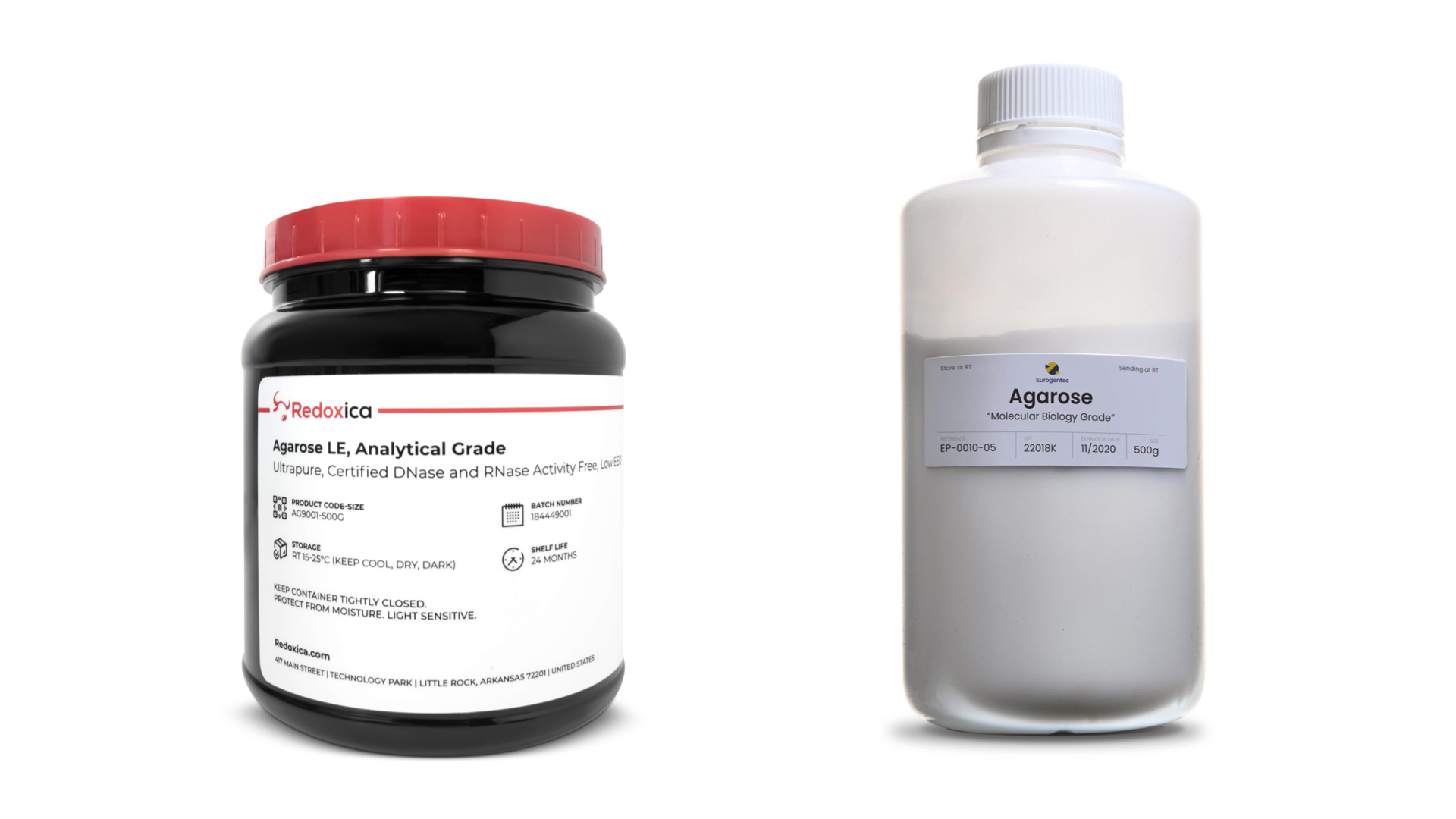



7 Best Agarose LE Suppliers of 2024 - An Agarose Comparison Guide
Agarose is a widely used biopolymer in molecular biology and biochemistry research for applications such as DNA and RNA electrophoresis, gel purification, and protein analysis. Agarose Low Electroendosmosis (LE) is a specific type of agarose with unique properties, making it a popular choice for many research applications. In this article, we will explore the characteristics of agarose LE and provide insights on selecting the best type for various applications.
Agarose LE is a highly purified form of agarose specifically designed to minimize electroendosmosis, which is the movement of charged molecules through the gel matrix during electrophoresis. Electroendosmosis can distort the migration of DNA or RNA bands, resulting in poor resolution and inaccurate results. Agarose LE is specifically formulated to reduce this phenomenon, making it an ideal choice for high-resolution applications.
One of the key factors to consider when selecting agarose LE is the percentage of agarose in the gel. Agarose LE is available in various concentrations ranging from 0.5% to 3%, with higher percentages generally used for applications requiring higher resolution. Lower percentage gels are ideal for larger DNA fragments, while higher percentage gels are better suited for smaller DNA fragments. The choice of agarose concentration will depend on the specific size range of DNA or RNA fragments you are working with.
Another important consideration is the melting and gelling temperatures of agarose LE. The melting temperature refers to the temperature at which agarose dissolves completely, while the gelling temperature is when agarose solidifies to form a gel. Agarose LE is available in various melting and gelling temperatures, allowing researchers to choose the appropriate type based on their specific experimental conditions. For example, low melting temperature agarose LE is often used for applications where DNA or RNA fragments must be extracted from the gel after electrophoresis. Standard melting temperature agarose LE is suitable for most routine applications.
The quality and purity of agarose LE are also important considerations. High-quality agarose LE should have low levels of impurities, such as nucleases and proteases, which can degrade DNA or RNA samples and affect the accuracy of results. It is important to select agarose LE from reputable suppliers and ensure it is of sufficient purity for your specific application.
In addition to the above considerations, it is also important to consider the buffer system and voltage conditions used during electrophoresis when working with agarose LE. Different buffer systems and voltage conditions can affect the resolution and migration of DNA or RNA fragments in agarose gels. Following recommended protocols and optimizing your electrophoresis conditions is important to obtain the best results with agarose LE.
The 7 Best Agarose LE Suppliers of 2023
Redoxica Agarose LE - $199.00 / 500g ($0.40/g) - SKU AG9001-500G
An analytical molecular biology grade, DNase/RNase free, agarose LE with a gel strength of 1,200 g/cm² (1% gel), a gelation temperature of 36°C ± 1.5°C (1.5% gel), a melting point of 88°C ± 1.5°C (1.5% gel), and a 0.05 - 0.13 EEO (low EEO).
Eurogentec Agarose - $260/500g ($0.52/g) - SKU EP-0010-05
A molecular biology grade, DNase/RNase free agarose with a gel strength of 1,500 g/cm² (1% gel), a gelation temperature of 37-39°C (1.5%), a melting point of 88-90°C (1.5% gel), and a 0.05 - 0.1 EEO (low EEO).
Biorad Agarose - $774/500g ($1.55/g) - SKU 1613102
A molecular biology grade, certified agarose with a gel strength of 1,800 g/cm² (1% gel), a gelation temperature of 36°C (1.5%), a melting point of 88°C (1.5% gel), and a ≤0.12 EEO.
Promega Agarose LE - $662/500g ($1.32/g) - SKU V3125
An analytical grade, certified DNase/RNase free agarose LE with a gel strength of 1,000 g/cm², a gelation temperature of 36-39°C (1.5% gel), a melting point of 87-89°C (1.5% gel), and a 0.09 - 0.13 EEO (low EEO).
Lonza Agarose - $715/500g ($1.43/g) - SKU 50004
A molecular biology grade, DNase/RNase free agarose with a gel strength of 1,200 g/cm² (1% gel), a melting point of 34.5° to 37.5°C (1.5% gel), and a 0.09 to 0.13 EEO (low EEO).
Fisher Scientific Agarose - $1,105/500g ($2.21/g) - SKU BP160-500
A molecular biology grade, DNase/RNase free agarose with a gel strength of 1,200 g/cm² (1% gel), a melting point of 34.5° to 37.5°C, and a 0.09 to 0.13 EEO (low EEO).
Sigma-Aldrich Agarose - $1,210/500g ($2.42 /g) - SKU A9539-500G
A molecular biology grade, DNase/RNase free agarose with a gel strength of 1,200 g/cm², a gelation temperature of 36°C ± 1.5°C (1.5% gel), and a 0.09 - 0.13 EEO (low EEO).
Methodology:
Some of the factors we used to compare agarose LE from seven different scientific suppliers include, but are not limited to:
- Purity: The purity of agarose LE affects the background noise during electrophoresis. Higher purity means less background noise and better separation resolution.
- Gel strength: The gel strength of agarose LE determines its ability to form a stable gel matrix for electrophoresis. Higher gel strength means a more stable gel matrix.
- Melting point: The melting point of agarose LE affects its ability to dissolve in a buffer for gel preparation. A lower melting point means easier preparation of the gel.
- Price: The price of agarose LE varies between suppliers and affects its affordability for different labs.
Our Top Pick:
Redoxica's Agarose LE offering the best value as the most affordable option that meets or exceeds performance in comparison to more expensive brands.
In summary, agarose LE is a highly purified form of agarose specifically formulated to minimize electroendosmosis and provide high-resolution results in DNA and RNA electrophoresis. When selecting agarose LE, it is important to consider factors such as the percentage of agarose, melting and gelling temperatures, quality and purity, and the buffer system and voltage conditions used during electrophoresis. By carefully considering these factors, researchers can select the most appropriate type of agarose LE for their specific applications, ensuring accurate and reliable experiment results.
